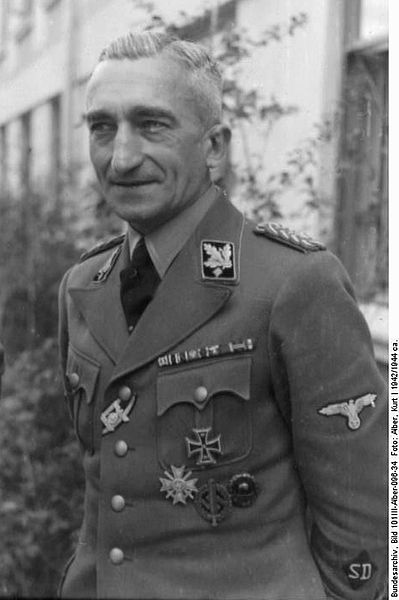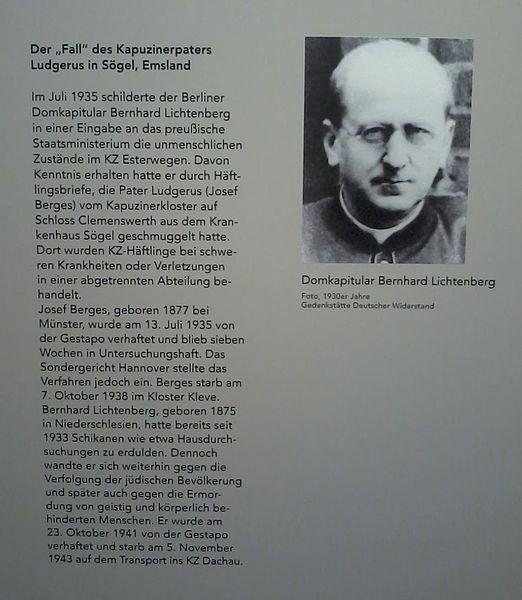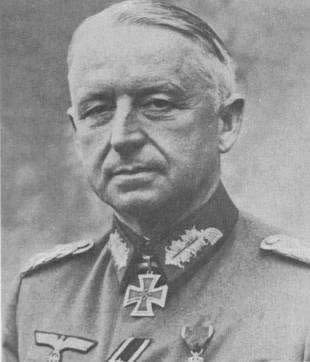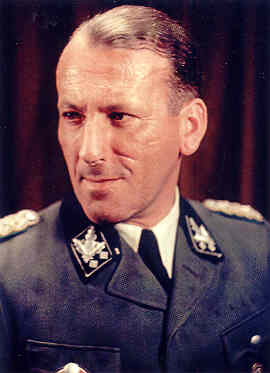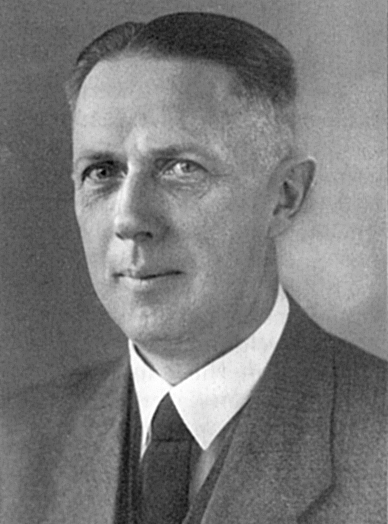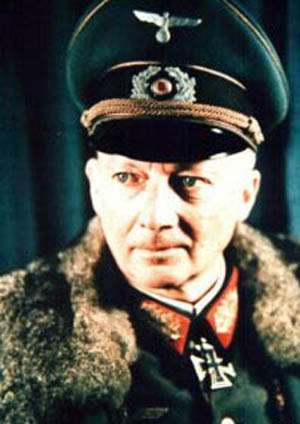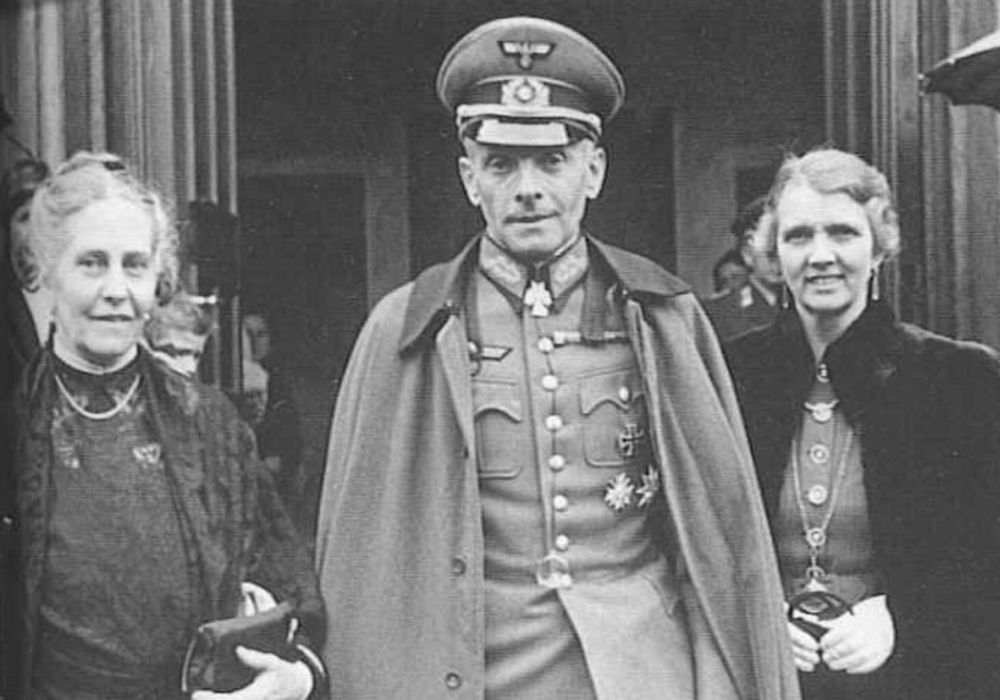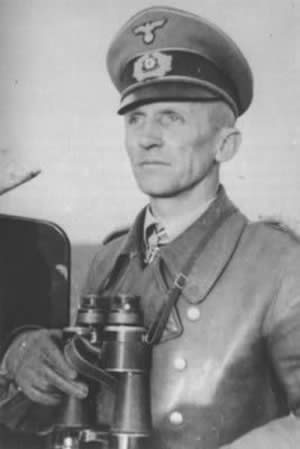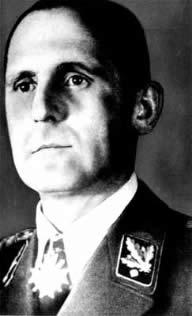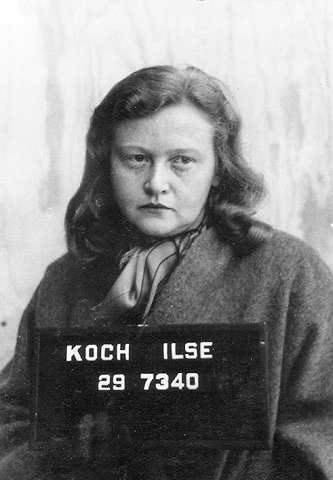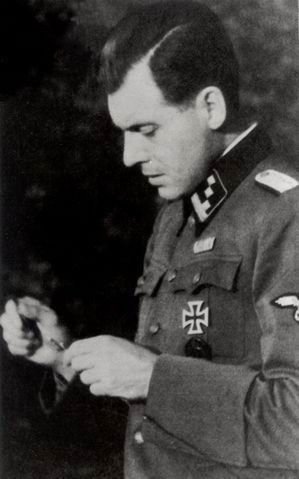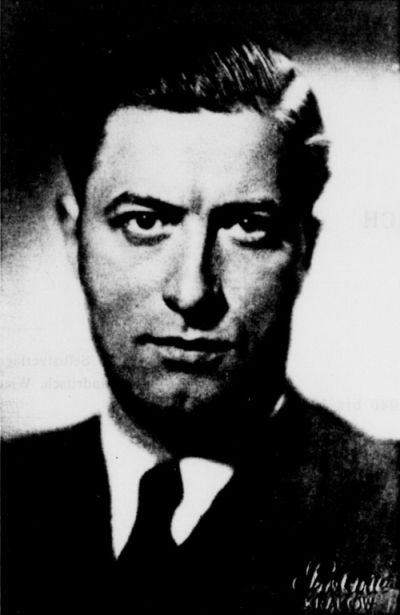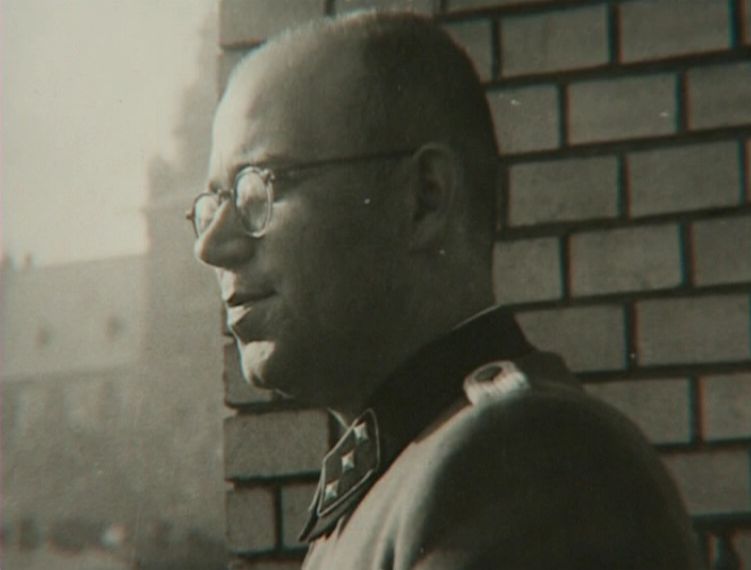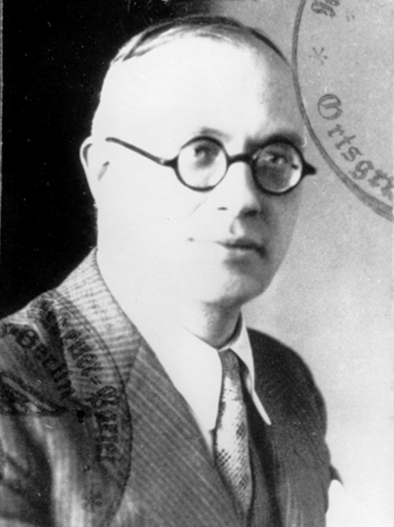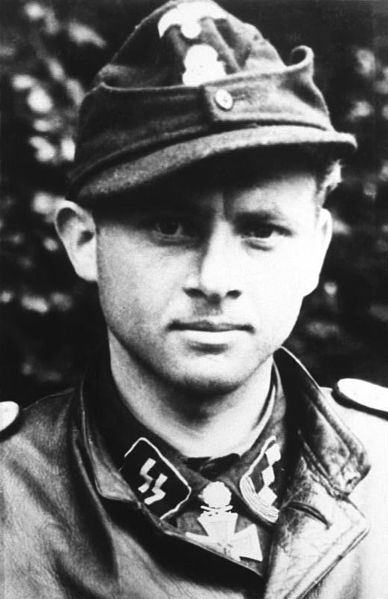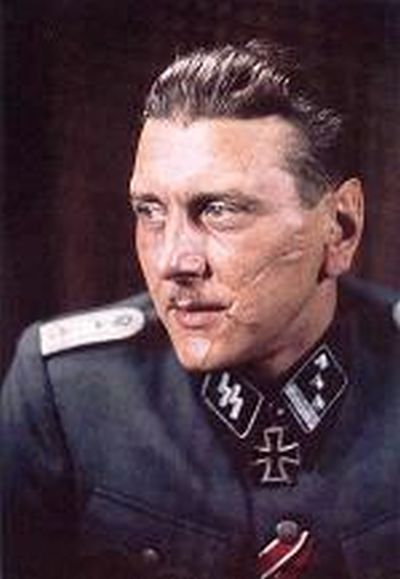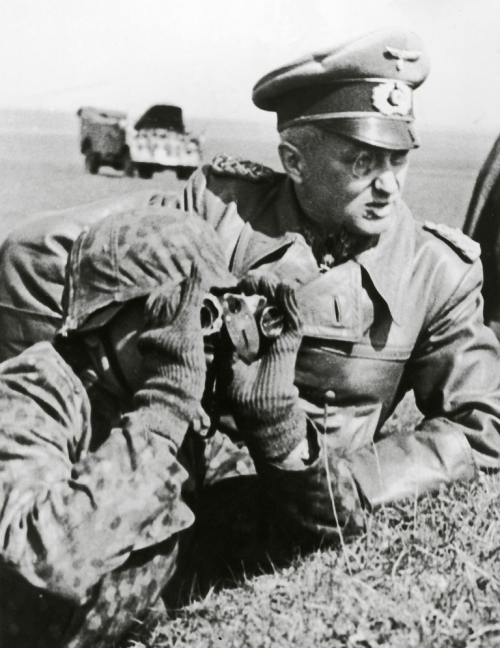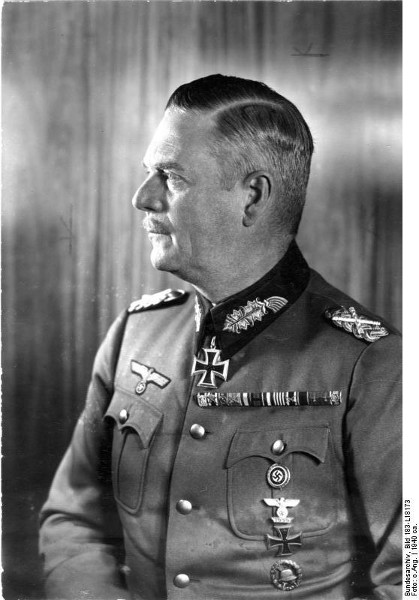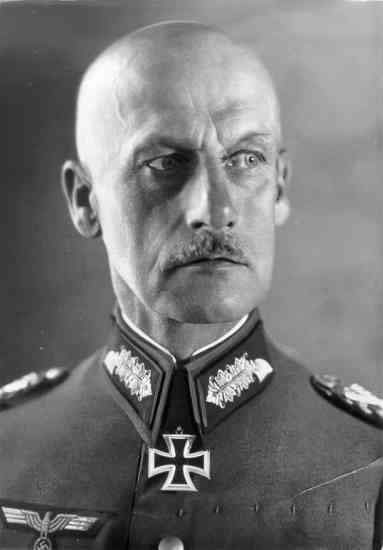Articles
- Article by Robert Jan Noks
- Published on September 1st, 2017
Arthur Liebehenschel
There are some among the camp commanders whose names are familiar to many such as Rudolph Höss and Joseph Kramer. A commander who has drawn less attention was Arthur Liebehenschel. Initially he made an inconspicuous career in the SS as a typical bureaucrat and he played an important role in setting up and expanding the system of concentration camps. More or less against his will he was appointed commander of Auschwitz I (Stammlager or main camp) in November 1943. Subsequently he had the questionable honor of being the last commander of Majdanek. According to witnesses, life as a camp commander was difficult for him. He did not have the ruthless, cold reputation of his predecessor in Auschwitz, Rudolph Höss. Nonetheless, Arthur Liebehenschel would end up on the gallows in Krakow.
- Article by Kevin Prenger
- Published on April 13th, 2018
Arthur Nebe
Arthur Nebe (1894-1945) was a police detective in Berlin and started his Nazi career in 1933 as a member of the Gestapo. Ultimately he rose to chief of the Reichskriminalpolizeiamt, the central office of the German criminal investigation police or Kripo. In the first months of the German invasion of Russia, Nebe was in command of Einsatzgruppe B.
- Article by Annabel Junge
- Published on June 13th, 2018
Bernhard Lichtenberg
Father Lichtenberg was no stranger to war. As early as WWI he had worked as an army chaplain in the German army, and during WWII he remained true to his spiritual calling. However, his war experiences had brought him political awareness. He despised communism, and later, fascism. One motto in particular guided him in everything he did, and that was a well-known text from the Bible: You shall love your neighbour as yourself (Matthew 22:39). During WWII this would become the text Bernhard Lichtenberg frequently called upon when he protested the hideous Nazi regime.
- Article by Tom Notten
- Published on November 3rd, 2016
Erich von Manstein
Erich von Lewinski was born November 24th, 1887 in Berlin, the tenth child of the Prussian general Eduard von Lewinski. After the death of his parents, Erich was adopted by his uncle, General Georg von Manstein. Erich von Lewinski took the surname of his uncle and embarked on a military career in the 3. Infanterie Guard Regiment in 1906. He served from 1911 to 1913 as adjutant of a Fusiliers battalion; in 1913 he entered military academy and was promoted to Leutnant.
- Article by Kevin Prenger
- Published on November 21st, 2015
Ernst Kaltenbrunner
Ernst Kaltenbrunner’s life began on October 4th, 1903 in Reid im Immkreis (Austria), close to Hitler’s birthplace Braunau. He was the son of lawyer Hugo Kaltenbrunner and his wife Therese Kaltenbrunner-Udwardy. Father and mother Kaltenbrunner were anti-religious and champions of the unification of Austria and Germany. In 1918, Ernst Kaltenbrunner moved to a boardinghouse in Linz. In this town he attended the Realgymnasium (grammarschool) and met Adolf Eichmann, one of his future coworkers.
- Article by Robert Jan Noks
- Published on November 26th, 2022
Friedrich Kritzinger
Friedrich Wilhelm Kritzinger was born April 24, 1890 in the little village of Grünfier, the son of a Lutheranian reverend. After 3 years of private education, young Kritzinger attended grammar school in Posen from 1899 to 1904 and subsequently the grammar school in nearby Gnesen (in Polish: Gniezno) until 1908. Between 1911 and 1913 and from 1920 to 1921, he served as an apprentice on the courts of Mogilno and at the Staatsanwaltschaft in Hirschberg.
- Article by Tom Notten
- Published on April 19th, 2017
Günther von Kluge
Hans Günther von Kluge was born October 30, 1882 in Posen in western Prussia (today Poznan, Poland), the son of a Prussian lieutenant-general. On graduating from the Kriegsakademie, Von Kluge served as Leutnant on the general staff in Berlin from 1913 onwards.
- Article by Wilco Vermeer
- Published on December 9th, 2016
Hans Oster
Hans Oster, born in 1887, would evolve into one of Germany’s most controversial military. During the First World War he served as an artillery officer ans Gerneal Staff officer. He remained in the Army and finally became deputy leader of the Abwehr. Untill 1944 he managed secretly to keep playing a part in several plans to overthrow Adolf Hitler. In the aftermath of the failed asassination attempt on Hitler at July 20th, 1944, Also Hans Oster was arrested. He was executed on April 9th, 1945.
- Article by Tom Notten
- Published on December 28th, 2017
Hasso von Manteuffel
Hasso von Manteuffel was born January 14, 1897 in Potsdam. He descended from a noble Prussian family; one of his forebears had even been a field marshal in the 19th century. At an early age, Von Manteuffel opted for an army career. He attended cadet school and joined a Hussar regiment in 1908.
- Article by Kevin Prenger
- Published on April 19th, 2018
Heinrich Müller
Heinrich Müller was born April 28, 1900, the son of poor Catholic parents. After having finished school he took up a three-year vocational training as an aircraft mechanic. Before he enrolled in the German army at the age of 17, he worked in a Bavarian aircraft factory for a while. During World War One he served in the German Imperial army as a pilot. In recognition of his achievements in wartime, he was awarded the EK I and II (Eisernes Kreuz or Iron Cross). He left the army in 1919 after the defeat of Germany.
- Article by Kevin Prenger
- Published on December 28th, 2022
Ilse Koch
Ilse Koch's name has been synonymous with the horrors of the concentration camps since the American tribunal at Dachau, which took place from November 1945 to August 1948. The blond wife of the camp commander was accused of the most heinous crimes and became notorious in Germany as 'Die Hexe von Buchenwald.' In the American media, she came to be known as 'The Bitch of Buchenwald.'
- Article by Kevin Prenger
- Published on September 27th, 2024
Josef Kramer
Josef Kramer was born an only child in a middle-class family on November 10, 1906, in Munich, the cradle of National Socialism. He spent his youth in Augsburg and initially worked as an accountant. After losing his job, the only future he could see was in the National Socialist Party. In December 1931, he joined the NSDAP and in January 1932, he joined the Schutzstaffel (SS). He began his career within the German concentration camps when he became a guard at Dachau in 1934.
- Article by Kevin Prenger
- Published on March 3rd, 2016
Josef Mengele
Joseph Mengele (1911-1979) became notorious by the crimes he committed as a physician in concentration camp Auschwitz. He conducted ghastly medical experiments on inmates and during selections on the platfom of Auschwitz-Birkenau, he sent numerous Jews and Gypsies to the gas chambers. He paid special attention to twins and to people with a conspicuous physical abnormality such as dwarfism. With his research, he aimed to make a contribution to the nationalsocialist racial ideology that assumed superiority of the Arian race and the inferiority of groups of the population such as Jews and Gypsies.
- Article by Kevin Prenger
- Published on March 10th, 2024
Julius Madritsch
A tree with a nameplate in Jerusalem is one of the few tangible memories of Austrian Julius Madritsch. In 1964, Yad Vashem nominated him Righteous among the nations. As a factory owner in Poland, he managed to save the lives of a part of his Jewish employees. He did this in cooperation with his much better-known colleague Oskar Schindler, whose story was filmed by Steven Spielberg under the name ‘Schindler’s List’ in 1993.
- Article by Kevin Prenger
- Published on January 14th, 2022
Konrad Morgen
During the war, Konrad Morgen served in the SS as investigative judge. One of the cases he was involved in, was that of Karl Otto Koch, the commander of concentration camp Buchenwald from 1937 to 1941. Morgen was outraged about the facts he discovered during his investigation in the camp; Together with a few cronies, Koch had stolen from inmates, had tortured them and murdered them without having been given official permission.
- Article by Robert Jan Noks
- Published on June 1st, 2023
Martin Luther
Martin Franz Julius Luther was born in Berlin on December 16, 1895. He dropped out of grammar school in August 1914. Shortly after the onset of World War I, he enlisted as a volunteer in the Prussian army. Until 1918, he served with the railroad troops. He reached the rank of reserve lieutenant.
- Article by Arnold Palthe
- Published on March 29th, 2018
Michael Wittmann
Thinking of German tank commanders of World War Two, names like Otto Carius, Heinz Günter, Kurt Knispel and Franz Bäke come to mind easily, but one of the best known with the highest number of enemy vehicles destroyed remains Michael Wittmann. He was born April 22, 1914 in Vogelthal in the Bavarian Oberpfalz and he died August 8, 1944 near Cynthia in Normandy. This is his story.
- Article by Arnold Palthe
- Published on November 26th, 2017
Otto Skorzeny
Austrian Otto Skorzeny was born June 12, 1908 in Vienna to a middle class family that faced hardships during the years of crisis following the First World War. The name Skorzeny makes it likely his ancestors were of Slav origin. When Otto was 18 years of age and began to study engineering at Vienna University he became familiar with the traditional fencing associations. The art of fencing would earn Skorzeny his nickname Scarface later on. In one of the many duels, he received the "Schmisse" in his face, the honorable scars that were fiercely sought after among students as they were signs of traits of character like self discipline and courage.
- Article by Wesley Dankers
- Published on March 18th, 2020
Walter Model
Walter Model was one of Adolf Hitler’s favourite generals. On more than one occasion he prevented an imminent military defeat on the Eastern front and he also made short work of the British paratroopers during the Battle of Arnhem.
- Article by Wesley Dankers
- Published on October 13th, 2018
Wilhelm Keitel
his weak and willing puppet handed the army, the instrument of aggression, to the party and directed it in its criminal actions. This is how Robert H. Jackson, American chief prosecutor at the International Military Tribunal in Nuremberg, described Wilhelm Keitel; during the war the head of the Oberkommando der Wehrmacht (OKW or supreme command of the Wehrmacht) and generally known as a yes man and lickspittle. Who was this army commander who followed Hitler's orders almost slavishly and how much power did he have? In this article, these questions shall be dealt with.
- Article by Tom Notten
- Published on January 27th, 2017
Wilhelm von Leeb
Wilhelm Joseph Franz von Leeb was born September 5,1876 in Landsberg am Lech, the son of a Bavarian army officer. He was brought up in strict Roman-Catholic fashion which was to leave its marks during his later career. Considering the military tradition of the family, he was destined to become an officer and so it happened. At the age of 19, he joined 4. Feldartillerie König, a Bavarian unit in Augsburg, holding the rank of Fahnenjunker. Next came short detachments to the War Academy in Munich, the Bavarian School of Artillery and Engineers and the artillery factory in Amberg.

